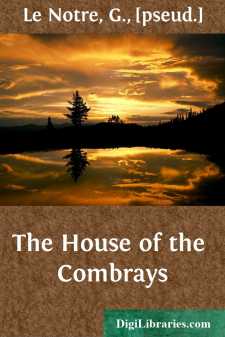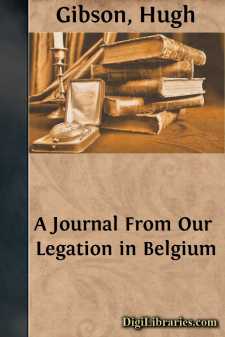History
- Africa 30
- Americas (North Central South West Indies) 50
- Ancient 68
- Asia 58
- Australia & New Zealand 8
- Canada 41
- Caribbean & West Indies 1
- Civilization 20
- Eastern Europe 12
- Europe
- Expeditions & Discoveries 60
- General 77
- Historical Geography 1
- Jewish 9
- Latin America 3
- Medieval 8
- Middle East 13
- Military 248
- Revolutionary 8
- Study & Teaching 5
- United States 353
- Western Europe 56
- World 13
Europe Books
Sort by:
by:
Thomas H. Benton
PREFACE IN THE SOCRATIC MANNER "Nothing broadens and mellows the mind so much as foreign travel."—Dr. Orison Swett Marden. The scene is the brow of the Hungerberg at Innsbruck. It is the half-hour before sunset, and the whole lovely valley of the Inn—still wie die Nacht, tief wie das Meer—begins to glow with mauves and apple greens, apricots and silvery blues. Along the peaks of the great...
more...
by:
G. Le Notre
CHAPTER I THE TREACHERY OF JEAN-PIERRE QUERELLE Late at night on January the 25th, 1804, the First Consul, who, as it often happened, had arisen in order to work till daylight, was looking over the latest police reports that had been placed on his desk. His death was talked of everywhere. It had already been announced positively in London, Germany and Holland. "To assassinate Bonaparte" was a...
more...
INTRODUCTION. In the present edition of Thomas Davis it is designed to offer a selection of his writings more fully representative than has hitherto appeared in one volume. The book opens with the best of his historical studies—his masterly vindication of the much-maligned Irish Parliament of James II. Next follows a selection of his literary, historical and political articles from The Nation and...
more...
CHAPTER I. FAMOUS SOUTHWARK INNS. Unique among the quaint maps of old London is one which traces the ground-plan of Southwark as it appeared early in the sixteenth century. It is not the kind of map which would ensure examination honours for its author were he competing among schoolboys of the twentieth century, but it has a quality of archaic simplicity which makes it a more precious possession than...
more...
THE FIRST CHAPTER. Having ended our former booke with the end of the Romane power ouer this Iland, wherein the state of the Iland vnder them is at full described; it remaineth now that we procéed to declare, in what state they were after the Romans had refused to gouerne them anie longer. Wherefore we will addresse our selues to saie somewhat touching the succession of the British kings, as their...
more...
by:
Hugh Gibson
INTRODUCTION This volume is not a carefully prepared treatise on the war. It does not set out to prove anything. It is merely what its title indicates—a private journal jotted down hastily from day to day in odd moments, when more pressing duties would permit. Much material has been eliminated as of little interest. Other material of interest has been left out because it cannot be published at this...
more...
INTRODUCTION Of the great incidents of History, none has attracted more attention or proved more difficult of interpretation than the French Revolution. The ultimate significance of other striking events and their place in the development of mankind can be readily estimated. It is clear enough that the barbarian invasions marked the death of the classical world, already mortally wounded by the rise of...
more...
Our Sailors. “Let fall the topsails, hoist away—up anchor, round goes the capstan—sheet home—haul taut the braces! and away we glide, to prove to our countrymen that British sailors have not been sleeping on beds of roses for the last quarter of a century since her gracious Majesty Queen Victoria came to the throne.” So wrote our author some forty years ago. “Up anchor, full speed ahead,”...
more...
by:
Charles Morris
HERMANN, THE HERO OF GERMANY. In the days of Augustus, the emperor of Rome in its golden age of prosperity, an earnest effort was made to subdue and civilize barbarian Germany. Drusus, the step-son of the emperor, led the first army of invasion into this forest-clad land of the north, penetrating deeply into the country and building numerous forts to guard his conquests. His last invasion took him as...
more...
by:
Justin McCarthy
"SUPREME IRONIC PROCESSION." For six and forty years England had been ruled by German princes. One Elector of Hanover named George had been succeeded by another Elector of Hanover named George, and George the First and George the Second, George the father and George the son, resembled each other in being by nature German rather than English, and by inclination Electors of Hanover rather than...
more...











